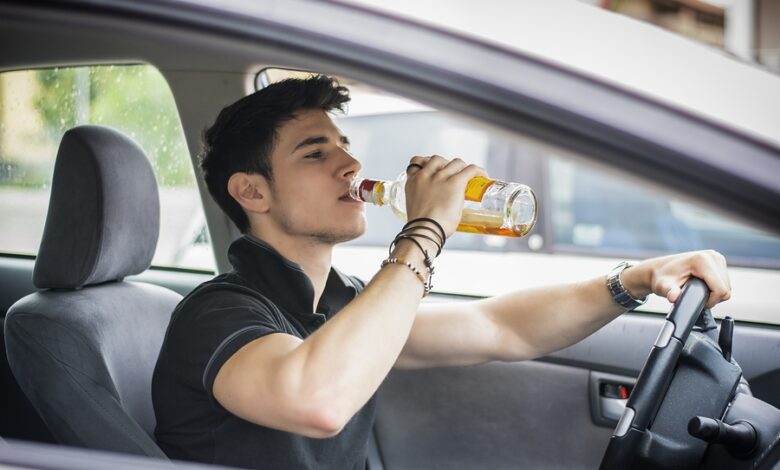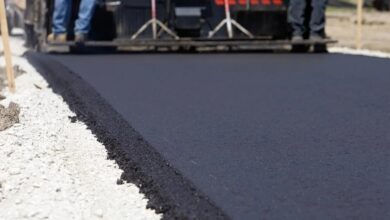What to do if you’re in a drink-driving accident

There’s no way to be prepared for a car accident. It’s not something anyone wants to go through, nor should you have to. However, even the safest, most experienced drivers can run into trouble at the fault of other vehicles on the road.
After the initial crash, shock and adrenaline sets in, and it’s even worse if you suspect you’ve been hit by a drunk driver. If the situation wasn’t stressful enough, someone under the influence is often unpredictable – adding more uncertainty to the situation. While trying to get their information, they may be slurring or incoherent; they might even believe they weren’t in the wrong or not remember the incident in the following days.
If you’ve been in an accident with a drunk driver, it can be difficult to know what to do. That’s why this post is going to lay out the right steps to take to make sure you’re covered and get the compensation you deserve.
Related: Tips for Finding the Right Rehabilitation Facilitation
Keep calm
Easier said than done. However, if you’re dealing with someone under the influence, it’s important that you do everything in your power not to escalate the situation – as this could easily put you in more danger. If the other driver seems erratic or aggressive, it is best to put space between the two of you. Depending on where the accident occurs, it might be safe enough to wait in your vehicle till the police or EMT arrives. However, as with any accident, you should ensure there is no glass in the area or risk of fire in the car before you get in.
It’s important to remember that you are a victim in this incident, and it isn’t your responsibility to calm the other driver down or sober them up. Unless you’re at fault, try not to apologize either, no matter how difficult it might seem! If your apology ends up being the only thing they remember from the incident, it might come back to bite you when trying to claim that they were at fault.
Call for help
As with any car accident, you should call 911 as soon as you can. It’s not worth assuming witnesses or the other driver will call the emergency services on your behalf, so it’s better to do it yourself. When connected, it’s a good idea to let the dispatcher know that the driver seems inebriated and provide details as to why you think this. This will help them determine whether or not to call for an ambulance at the same time or how many police to send to the scene.
Related: Dealing With Drug Addicts: Why Family Needs Rehabilitation Too
Gather evidence
Even if you don’t think you’ll end up making a claim or seeking compensation, it’s integral that you gather as much evidence as you can. Personal injury lawyers like Brown and Crouppen Washington MO will need as much information about the incident as possible to help fight your corner.
If at all possible, you should try to get video evidence of the other driver so that you can prove they appeared under the influence at the scene. It can also help to get video or photographic evidence of the driver. For example, if they flee the scene, it will be much easier to identify them later. There is always the possibility that the vehicle has been stolen. As such, photographic evidence of who was driving will help to avoid a false claim as the owner of the car would not actually be liable.
It’s also worth speaking to any witnesses that may be willing to talk. Make sure to get their contact information as not everyone will be open to speaking to the police and providing their details.
You can’t guarantee that the police on the scene will press charges, make arrests or write tickets. However, this shouldn’t be too much concern for you. As long as you have all the evidence, it is possible to claim on their insurance or for compensation later down the line.
Related: A Guide to understanding the benefits of Seeking Addiction Help at a rehab center
Get medical assistance
Even if you aren’t sure you’re injured, it is critical that you seek medical assistance either at the scene or shortly after. The initial shock and adrenaline in a crash can numb the body, meaning the real impact of the crash might not be noticeable to you for a few hours. A medical professional will be able to assess you to determine whether any serious injuries have occurred.
If it turns out that the other driver doesn’t actually have their own auto insurance, you are still able to main a claim for medical treatment via uninsured motorist coverage.
Speak to an attorney
Those looking to make an injury claim will have a lot of work to do if they don’t contact an attorney. With a law professional on your side, it will be much easier to navigate issues and deal with their insurance company correctly. While the experts take care of the legal side, you can focus on healing – both physically and emotionally – from the incident.
Anyone who has been in an accident will understand how difficult it can be to think straight. With speaking to the police, gathering your own evidence, contacting family to reassure them, finding a way home, and trying to determine whether you’re injured or not, it can be easy to forget vital things that can help you make a claim.
Related: How Cognitive-Behavioral Therapy Can Treat Addiction
While you can’t be prepared for an actual crash, it is a good idea to try and remember the above steps so that you may be a little more aware of the vital steps required just after the initial impact. The first port of call is to get the police to the scene and a medical professional to assess your condition. Then you will be on the mend in no time.
Understandably, there are a lot of emotions whirling around when you’re in an accident, so if you do not feel like you could gather the correct information yourself, contact someone local to come to the scene and do it for you. That way, you can focus on processing the accident before getting medical assistance.











